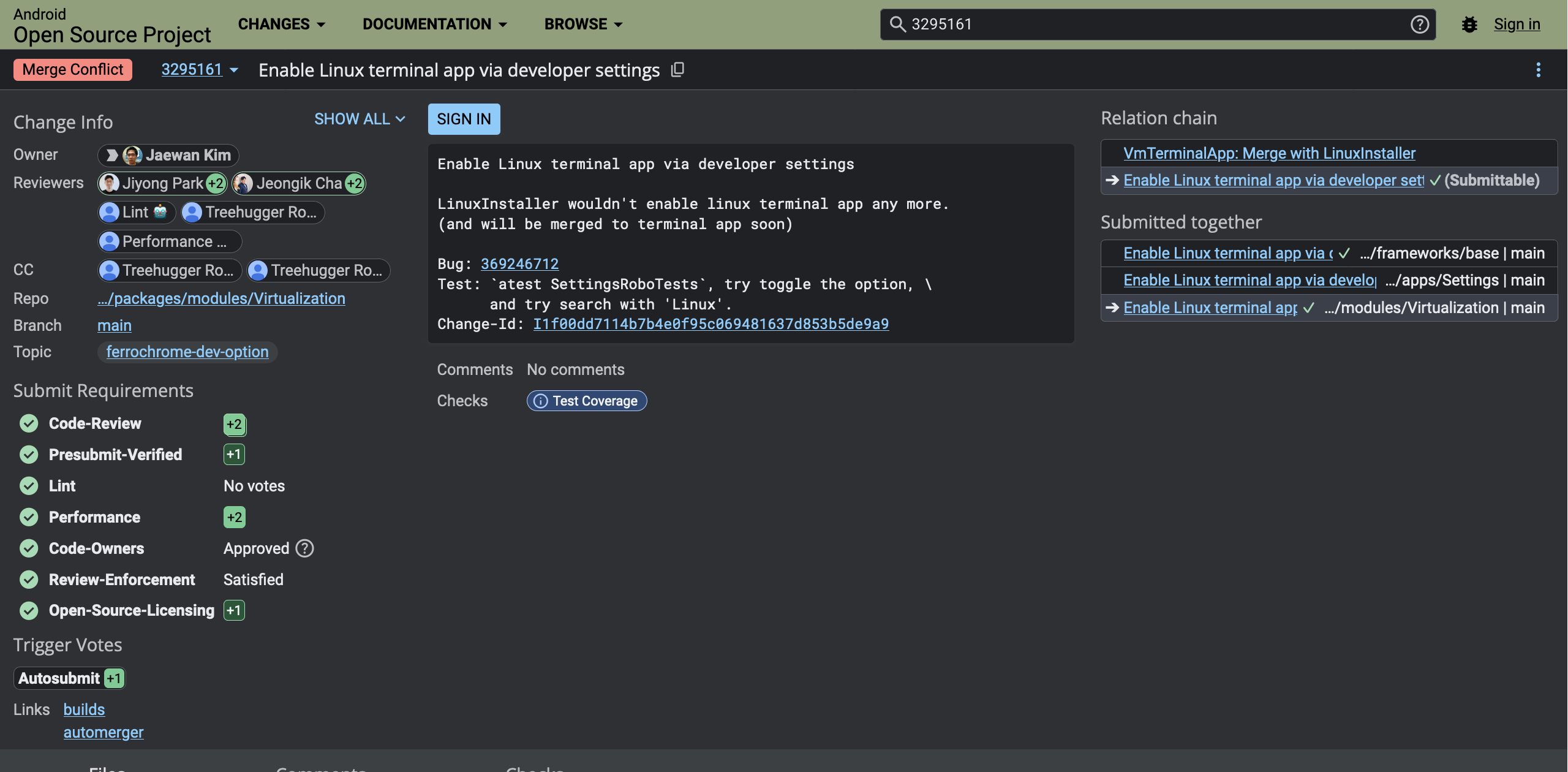What just happened? For all the native apps and tools available on platforms like Chrome OS, sometimes you just need a good old Linux program to get things done, especially if you are a developer. Realizing this, Google added Linux to the OS a while back. Now, it’s doing the same for Android with a new, official way to run Linux apps and distros.
According to some code changes spotted by Android Authority’s Mishaal Rahman in the Android Open Source Project, the folks at Google have been quietly baking Linux support into Android’s infrastructure. A few weeks back, engineers started developing a new “Terminal” app that leverages Android’s Virtualization Framework to run a Linux virtual machine and execute commands.
In its current bare-bones form, this Terminal app requires manually configuring the Linux VM by supplying a Debian image and a control file. But the AOSP commits indicate Google plans to streamline this process drastically. The company is working to integrate the existing “LinuxInstaller” utility directly into the Terminal app itself.
Once the integration is complete, this unified Terminal app will likely be able to download, set up, run, and interface with a Debian Linux instance, all from within the app.
More AOSP patches reveal Google is also enhancing the Virtualization Framework that powers this Linux capability. Upcoming additions include backup/restore for VM snapshots, nested virtualization for running VMs within VMs, and compatibility for ARM as well as x86 processors.
Google also aims to beef up the Terminal app, which is currently pretty bare-bones aside from options to copy the VM’s IP address and shut it down. The planned settings pages will allow you to resize the disk, set up port forwarding, and potentially recover partitions.
Now, you might be wondering – why would I want to run Linux apps on my Android device? For most users, there’s little need, admittedly. But for developers, the ability to run Linux tooling, command line utilities, and apps like Android Studio could be a game-changer, especially as Chrome OS grows more Android-based over time. As the lines continue blurring, having a consistent Linux experience across phones, tablets, and laptops could boost Android’s viability as a desktop-class development platform.
There’s no information on when exactly this Terminal app and Linux virtualization support will officially launch. But Rahman speculates that they will arrive in Android 16.






